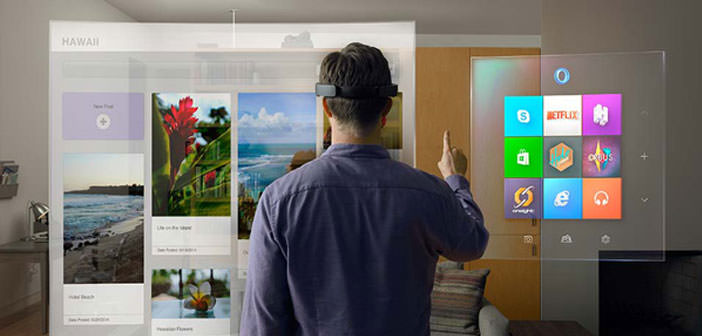ASUS and Microsoft have hinted that they are working together to become HoloLens and windows holographic an open platform.
The helmet augmented reality HoloLens of Microsoft will not be the only one on the market, but will represent the benchmark for a new category of product. Among the first models, we might find one product from ASUS. The Taiwanese company has confirmed that it is working with Microsoft on the new project to bring to market an AR headset based on the operating system Windows Holographic.
According to what is known at the time, ASUS could be the first company besides Microsoft to want to create an alternative product to HoloLens, but currently there is no certainty. Jonney Shih, chairman of ASUS, told CNET that the company ” is considering ” together with Microsoft the opportunity to enter the industry, and so the words of Terry Myerson seemed positive in this regard.
” All hardware products we produce are born with the intention to grow the Windows ecosystem, ” said Myerson. ” And that is why we are investigating the possibility of giving birth to this category. ” Microsoft will open its Windows platform Holographic both software developers that can convert existing applications to the new format ” holographic “, both hardware manufacturers.
HoloLens is a new helmet of what is called ” mixed reality “, that is capable of displaying three-dimensional images (holograms) within a real environment. The company showed some features of the product in some very interesting demos, with players playing Minecraft ” resting ” levels of the game on the furniture or ” hanging ” windows to the walls as if they were paintings.
Microsoft has launched a partnership with NASA to provide HoloLens the ISS astronauts, and is looking to partner with health institutions and other professional areas in which the ” mixed reality ” can provide new ways to study and development opportunities. HoloLens is still a long-term project for Microsoft and could see the light of commercially only in the end of 2016, with ASUS that will add – if it ever will – only at a later time.

